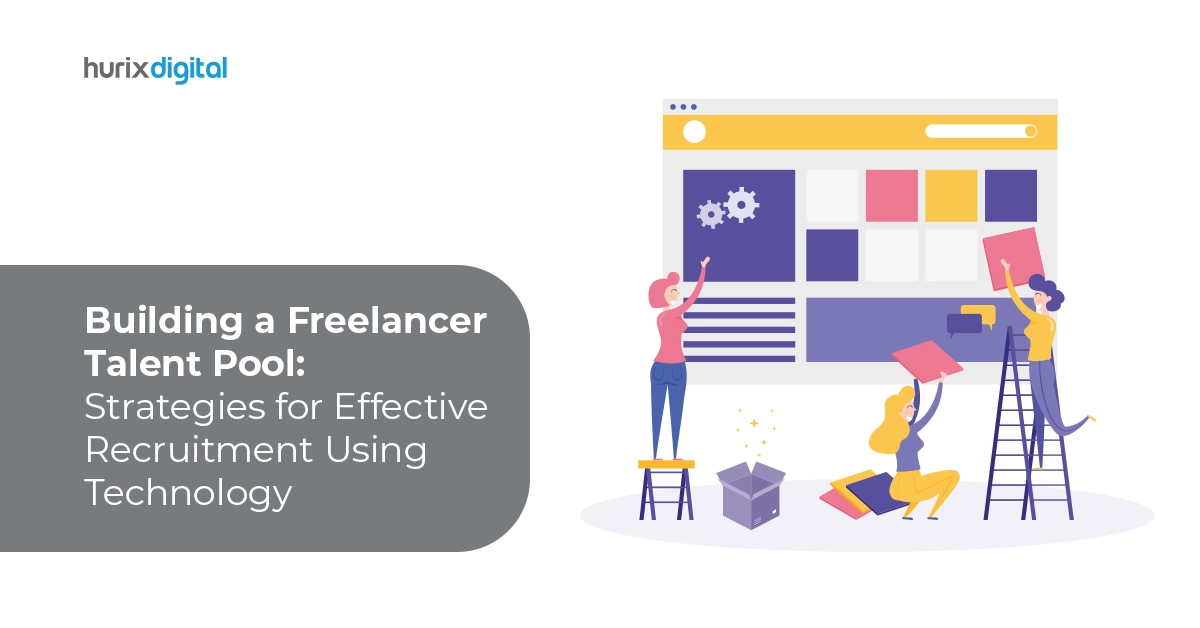
Integration-Friendly Platforms: Make Your Tech Stack Future-Ready
Summary
Explore the necessity of integration-friendly platforms for robust tech stacks, their adoption challenges, and selection criteria for optimal data flow and scalability.
With the world running at full throttle, having an agile tech stack has become the need of the hour. You don’t want obsolete integration platforms that crash like a house of cards, posing operational and security threats.
The tech world changes in the blink of an eye. In such a scenario, IT experts put high stakes on future-proof technology stacks. And that’s where integration-friendly platforms come to your rescue. The global market is predicted to reach $32.59 billion by 2029.
In this blog, we will cover various aspects of adaptable technology solutions, such as integration platforms, their importance, and how to pick the best option.
Before we dive deeper, let’s get our basics right!
Table of Contents:
- What is an Integration Platform?
- Integration-Friendly Platforms: Top Bottlenecks Hindering Its Adoption
- Integration Platform: Why Adaptable Technology Solutions is the Key to the Future?
- Factors to Consider Before Choose Right Integration Platforms
- Wrapping Up
What is an Integration Platform?
Data is the new oil, but here’s the catch: It’s all scattered.
Let’s understand this with an example: Imagine you are surfing through an elaborate restaurant menu. There are too many options—all haphazardly arranged. As a result, it takes more time to sift through and find what you want.
Now imagine the same elaborate menu is curated. Wouldn’t it be so efficient to find your favorite food and order it quickly?
Integration platforms are like these complied and organized menus.
Integration-friendly platforms are a cohesive set of software that allows you to develop, secure, and govern the workflow.
These platforms connect diverse applications and data systems on a central hub, providing flexibility to adapt resources for future technologies.
In addition, these double up as open API platforms, enabling easy API creation and lifecycle management. This allows you to meet a wide range of hybrid integration requirements.
In a nutshell, an integration-friendly platform is the first step in creating a future-proof technology stack. It brings together different applications and data storage across various environments to manage and automate complex business processes.
Also Read: Leveraging Large Language Models for Business Innovation: Top 9 Insights
Integration-Friendly Platforms: Top Bottlenecks Hindering Its Adoption
The road to creating a future-proof tech stack has several speed-breakers. Understanding these roadblocks will help you choose the right platform for robust business operations.
Let’s take a bird’s eye view of these challenges:
1. Rigid Data Silos
How do you make business decisions? Is it guesswork or a calculated move based on hardcore data?
You might say: a mix of both. You simply cannot undermine the power of data here. Data is the key that unlocks opportunities. However, an information influx has created tight data silos. The raw data within these silos doesn’t add any value – rather, it becomes difficult to derive any insights.
The result? – Decision makers lack a holistic view of critical information, resulting in missed opportunities and errors.
2. Data Blackout: Inadequate Real-time Information
Without integration-friendly platforms, updating data in real-time can be a challenge. Legacy systems usually operate on separate schedules, thus leading to unsynchronized data.
Obsolete data gives decision-makers a hazy picture, resulting in poor judgment and missed opportunities.
3. Limited Automation and Scalability
As your business scales, the IT ecosystem needs to be more connected. With outdated legacy systems, scaling your IT infrastructure becomes a nightmare. Such limited scope for scalability can hamper operational efficiency.
Similarly, the old-school platforms lack automation capabilities, which can prove detrimental to overall growth.
Integration Platform: Why Adaptable Technology Solutions is the Key to the Future?
Leveraging a future-proof technology stack offers endless benefits for your business. Here, we have listed the top factors that show why having integration-friendly platforms matters the most:
1. Streamlined Data Flow and Business Processes
Data silos are often hot spots within companies. Apart from duplicate data, outdated information, and human errors, silos prevent businesses from functioning efficiently.
These platforms knock down the silos, making the data flow streamlined and uninterrupted. As a result, the possibility of human errors is reduced significantly, providing high-quality and insightful data.
2. Agile Businesses For Competitive Edge
Technologies are evolving at the speed of light. Only an agile business with efficient operational capabilities can remain in the top league. That’s why adopting a future-proof technology stack is critical. It allows effortless and efficient integration of various applications, systems, and data sources. The result? This facilitates adaptability, allowing businesses to respond to changing market dynamics.
3. Reduced Overheads
Are your overheads shooting through the sky? There can be many reasons, but legacy systems are one of the top factors that can increase overheads.
With these platforms, businesses can automate tasks and reduce manual data manipulation. This reduces integration costs by optimizing resource allocation and enhancing the overall efficiency.
4. Better Scalability = More Flexibility
The advent of advanced robotics and AI has made scalable IT infrastructure more critical than ever. Scaling your IT ecosystem with a legacy system is difficult. That’s where adaptable technology solutions play a crucial role. These platforms are designed to scale, accommodating your business’s changing needs.
You don’t require extensive or custom coding, thus giving more flexibility to the IT teams by reducing complexities.
Factors to Consider Before Choose Right Integration Platforms
The sheer number of options for adaptable technology solutions can be overwhelming.
Let’s make things simpler for you. Here are a few things you need to take into account before picking an integration-friendly platform:
1. Identify Your Business Needs
No two businesses are the same. They have a unique set of challenges and requirements. So, before you make the choice, take a good look at your business’s needs.
For example, if you want to leverage API integration, the open API platform is a perfect choice to connect applications for smooth data sharing.
2. Consider Data Volume and IT Ecosystem Complexity
Go for integration platforms that efficiently handle the data load without affecting speed and performance.
Organizations with complex data or IT infrastructure require platforms with advanced features for seamless operations.
3. Security Requirements and Compliance
Before you choose a future-proof technology stack, make sure you have checked its security features. Pick a platform with robust features such as encryption, a two-way authentication process, and access control.
In addition, make sure the platform complies with industry standards for data privacy and added security.
Also Read: 6 Benefits of Hiring a Full-Stack Development Company to Improve Your Business
Wrapping Up
As businesses face new challenges, integration platforms offer a practical solution for changing needs. By enabling data consolidation, workflow optimization, and scalability, these platforms make your IT infrastructure future-ready.
We hope this blog has thrown light on integration-friendly platforms. However, if you have queries or doubts, contact Hurix Digital.
We offer a comprehensive range of adaptable technology solutions that equip your business for future opportunities.
What are you waiting for? Book a Discovery Call today to get more information about our services.

Currently serving as the Vice President of Technology Delivery Operations at HurixDigital, a prominent global provider of digital content and technology solutions for publishers, corporations, and educational institutions. With over 16 years of experience spanning EdTech and various domains, I hold certification as a SCRUM Product Owner (CSPO). My expertise includes operations, finance, and adept people management skills.





